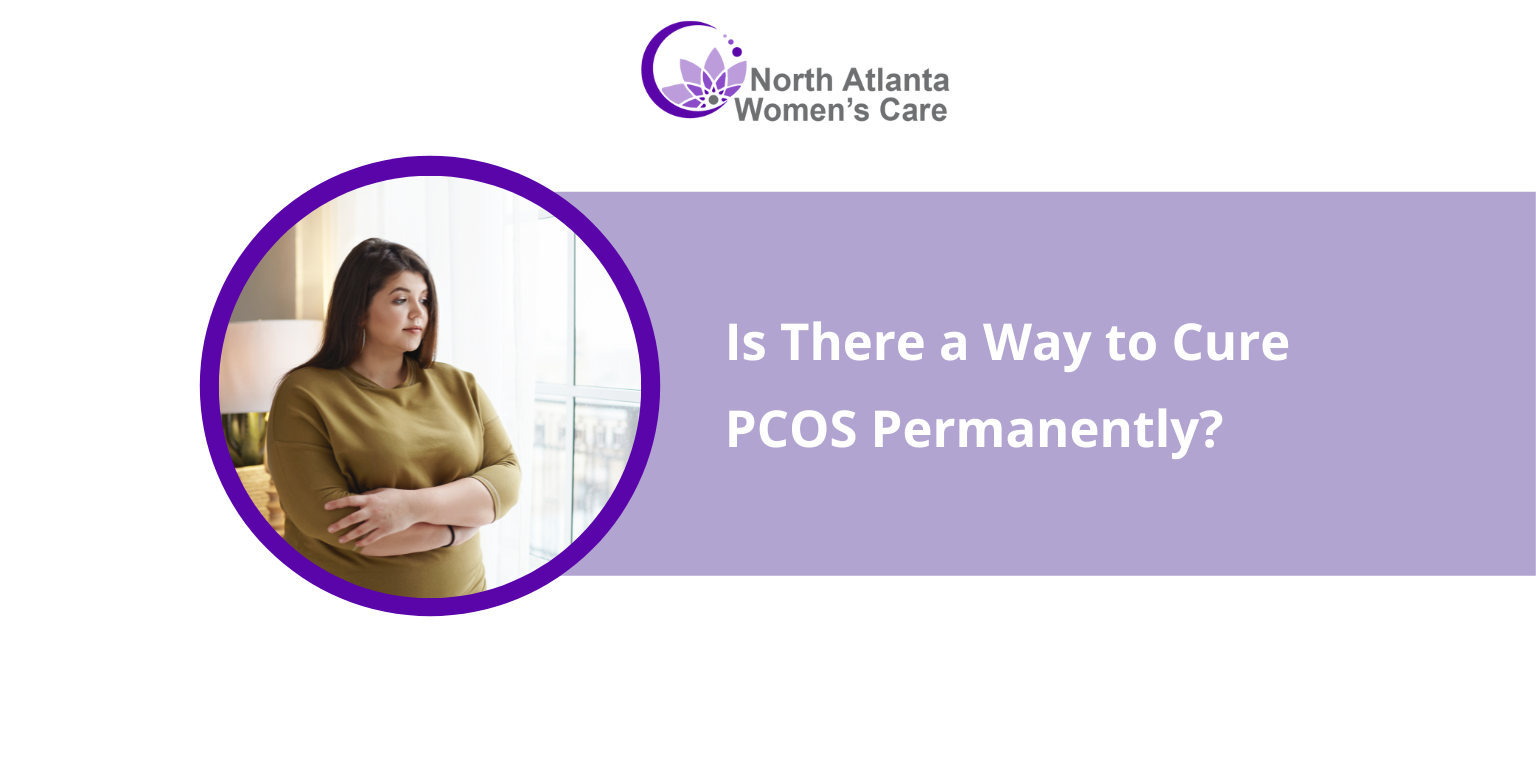Is There a Way to Cure PCOS Permanently?

Polycystic Ovary Syndrome (PCOS) is a complex hormonal condition that affects millions of women around the globe. It often presents with symptoms like irregular periods, weight gain, acne, and fertility challenges, all of which can have a significant impact on daily life. While many seek a permanent solution to this condition, the reality is more nuanced. In this blog we’ll discuss the nature of the disorder, its symptoms, available treatments, and practical strategies for managing it effectively, empowering women to take control of their health and lead fulfilling lives.
Understanding PCOS
PCOS is a chronic condition caused by hormonal imbalances and genetic factors. It often leads to the development of small cysts on the ovaries, though not all women with PCOS have these cysts. The exact cause remains unknown, but it is associated with insulin resistance, elevated levels of male hormones (androgens), and irregular menstrual cycles.
Common PCOS Symptoms
- Irregular periods: A hallmark of PCOS, caused by disrupted ovulation.
- Weight gain: Hormonal imbalances and insulin resistance make weight loss difficult.
- Acne and excessive hair growth: Elevated androgen levels cause skin issues and hirsutism (unwanted hair growth).
- PCOS and infertility: Irregular ovulation often leads to difficulty conceiving.
The Link Between PCOS and Infertility
PCOS disrupts regular egg release from the ovaries, making it a leading cause of infertility. Insulin resistance and high androgen levels further complicate the reproductive process, creating hurdles for women trying to conceive.
Common Fertility Challenges Faced by Women with PCOS
- Difficulty tracking ovulation
- Higher risk of miscarriage
- Increased likelihood of requiring fertility treatments
Lifestyle and Medical Interventions to Improve Fertility
Lifestyle changes such as maintaining a healthy weight, reducing stress, and eating a balanced diet can improve fertility. Medical options, including ovulation-inducing medications and assisted reproductive technologies like in vitro fertilization (IVF), may also provide solutions.
Best Treatment for PCOS: A Holistic Approach
Managing PCOS requires a balanced strategy that combines lifestyle changes and medical interventions to address its symptoms effectively. A holistic approach focuses on improving overall health, balancing hormones, and tailoring solutions to individual needs.
Lifestyle Changes for PCOS
- Healthy Diet: A nutrient-rich diet with whole grains, lean proteins, healthy fats, and fiber helps regulate blood sugar and balance hormones. Avoiding processed foods and sugars reduces inflammation and supports insulin sensitivity.
- Regular Exercise: Activities like cardio, yoga, or strength training improve weight management, insulin response, and reduce symptoms such as fatigue.
- Stress Management: Practices like mindfulness, yoga, and therapy alleviate stress, which can worsen hormonal imbalances.
- Adequate Sleep: Consistent sleep patterns of 7–9 hours are essential for hormone regulation and metabolic health.
- Natural Remedies: Supplements like omega-3s or inositol may support insulin regulation and hormonal health, but always consult a healthcare provider.
Medical Interventions
- Medications: Doctors may prescribe medicines to regulate periods, improve insulin sensitivity, or aid ovulation for those planning pregnancy.
- Fertility Treatments: Women facing conception challenges can explore ovulation-stimulating medications or advanced techniques like IVF.
- Personalized Plans: Collaborating with a healthcare provider ensures treatment plans are tailored to address fertility, weight, or hormonal concerns effectively.
Can PCOS Be Cured?
PCOS is a lifelong condition caused by genetic and hormonal factors, meaning there is no permanent cure. However, its symptoms can be effectively managed with a proactive approach. Lifestyle changes like a healthy diet, regular exercise, stress management, and adequate sleep play a crucial role in alleviating symptoms.
Medical interventions, tailored to individual needs, can address specific concerns such as irregular periods or fertility challenges. While PCOS cannot be cured, consistent care and management strategies enable women to lead fulfilling lives, minimize its impact, and improve overall health.
Take Charge of Your PCOS Journey with Our Expert Care
Living with PCOS can be challenging, but it doesn’t have to define your life. While a permanent cure isn’t possible, managing its symptoms through lifestyle changes, early intervention, and personalized care can significantly improve your quality of life.
Take the first step toward better health with North Atlanta Women's Care. Contact us to connect with our team of experts, who specialize in creating tailored management plans designed to meet your unique needs.
Comments are closed

